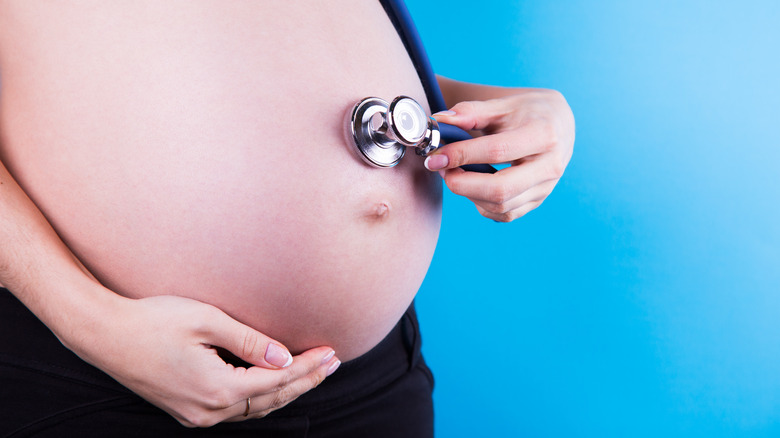This Is What Really Causes Preeclampsia
If you're pregnant, you could be busy planning babymoons or deep in the nesting process in preparation for a new little bundle of joy. On the other hand, you could be too busy dealing with premature contractions, or distracted by the ever-present aching pain in your back. Yes, pregnancy can bring both the best of times and the worst of times. And all the while, certain conditions could be hiding in the shadows just waiting to cause unexpected complications. Take preeclampsia for example. According to Mayo Clinic, preeclampsia is a medical condition involving high blood pressure and signs of organ damage. It occurs most often in pregnant women who have passed the 20-week mark who have previously shown no signs of having high blood pressure.
"Preeclampsia typically develops after the 20th week of pregnancy. However, it can also develop after a woman delivers and is discharged from the hospital," Dr. Sindhu Srinivas, director of Obstetrical Services at the Hospital of the University of Pennsylvania, tells Penn Medicine.
Preeclampsia can develop for a number of different reasons
Srinivas goes on to warn about the gravity of the oftentimes unexpected complication. "Preeclampsia and related disorders are most often characterized by the presence of a sudden rise in blood pressure. This can lead to seizure, stroke, multiple organ failure and death of the mother and/or baby," she warns via Penn Medicine.
If you're pregnant or recently have been, it is important to be aware of the common symptoms of preeclampsia. Mayo Clinic recommends looking out for increased nausea and vomiting, pain in the upper abdomen, decreased urine output, and shortness of breath. It may also be difficult to know if you are at risk for the condition as there are many factors linked to its cause. Some possible causes include damage to the blood vessels, an issue with the immune system, or problems with blood flow to the uterus. Certain genes have also been linked to the development of the condition.
Pregnancy and postpartum are filled with many highs and expected lows. While you ride that tidal wave of emotions, don't forget to be on the lookout for signs of an unexpected condition that could seriously threaten both your and your baby's health.


